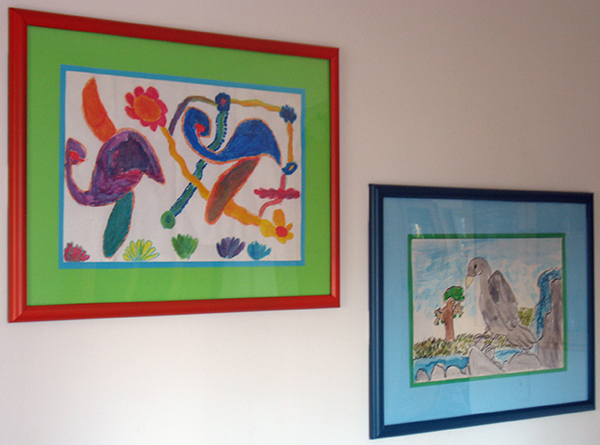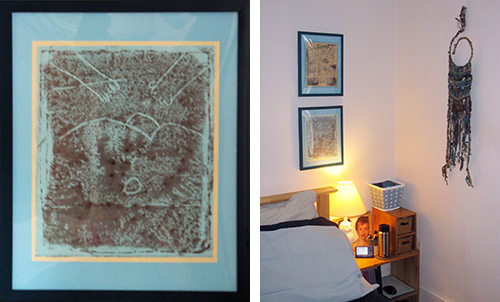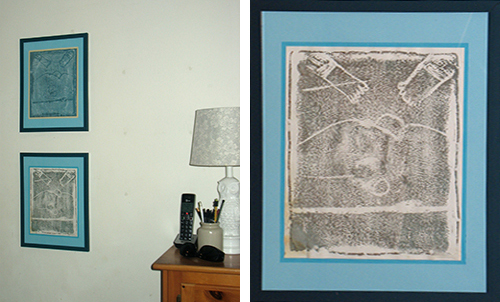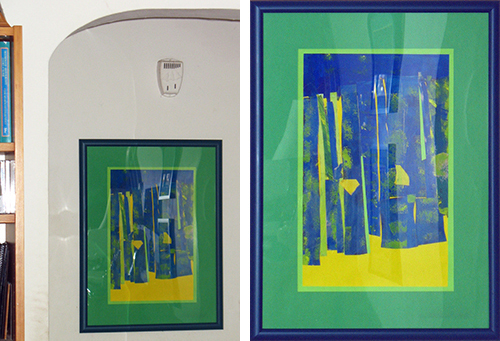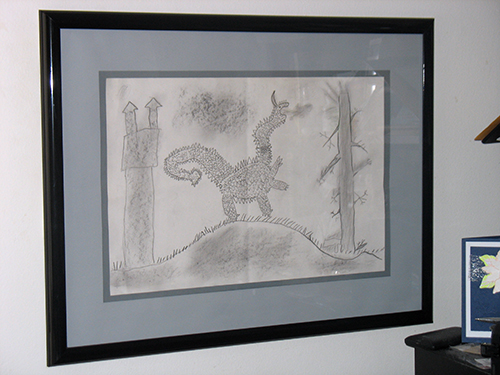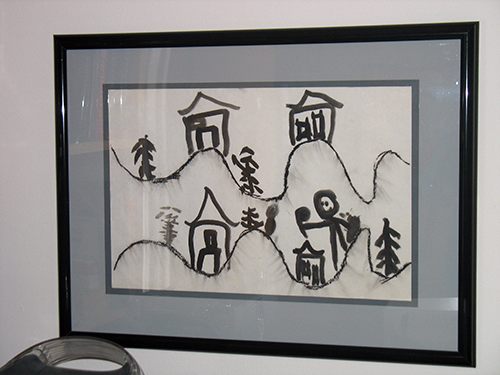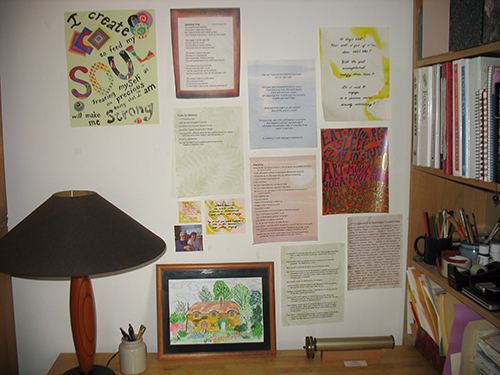 Gael hated to leave her.
Gael hated to leave her.
Stepping from the light airiness of her chamber into the close stones of the Regenen Stair was like exchanging the pleasure gardens of Hadorgol for its catacombs. Except that the tunnels among Hadorgol’s tombs were superior to any place inhabited by trolls. But that wasn’t the cause of his reluctance. He wanted to assure himself that she did, in fact, sleep. That she didn’t brood. Dreas’ death was a terrible thing, and Gael could tell that Keir had not accepted his assertion that she was not at fault. She held herself to blame.
He’d wanted to stay and argue her into letting him shoulder the responsibility, but she needed rest. And she could not sleep and listen while he gave voice to his persuasions. He would talk with her later. When it was time to send that messenger to wake her, he’d go himself.
In the meantime, he needed to see how Arnoll’s preparations were proceeding. And he needed to decide what in Cayim’s hells he would do with that ill-fated gong. He pondered the matter as he descended the spiraling steps, down and down and down.
He understood Keir’s point of view. She was more a healer than she’d ever been a notary. He felt that in his bones as he’d not before. Indeed, he felt it literally, with his repositioned nodes tugging his inner framework to greater strength because of Keir’s work upon him.
He and Keir had wondered if the lodestone, embedded within the gong’s central boss, would still multiply a mage’s—or a healer’s—energea, the way it had before it was so embedded. Well, it did. They’d learned that thoroughly today, although at great cost.
Of course Keir would wish to heal others as she had healed him. And who was he to deny her the tool that would permit this? Who was he to deny others ailing that relief?
He almost had to accede to Keir’s wishes.
And yet.
How many others would die—or be seriously injured—as they learned the lodestone’s parameters, as they discovered what else might go wrong and how to avoid it? Already Carbraes had lost someone irreplaceable. The regenen would never again find a friend so dear, a friend he’d known from boyhood. Never again would Dreas eat beside Carbraes, sit beside him on the terrace, walk with him on the ramparts. That was the personal loss. The military loss was just as great. Who now would lead Carbraes’ legions?
Gael dodged along one of the balconies over the middle place of arms to the Lake Stair, wanting to emerge directly into the armor smithy, not the blade smithy. One of the opteogints was training, hacking at the butts with much shouting and clanging.
Keir’s dream of healing trolls was worthy, but she might kill more than she healed in pursuit of it. Searing memory brought Carbraes’ grief-ravaged face before Gael again. Hope was not the same as certain, reliable results. And if Gael were to decide that Keir was right, what then? He’d been given a direct order by his regenen. Along with a dire consequence should he fail to obey. How could he preserve Keir’s lodestone, if Carbraes executed him forthwith? A dead guardian was no guardian at all.
Leave it, he told himself. Let it settle. Your thoughts will clear if you don’t keep stirring them.
The glow of the forges in the dim vaults of the smithies, the smell of hot metal and burning charcoal, and the ringing of hammers comforted him when he strode out of the passage from the Lake Stair, but the rhythm of the smiths was subtly different. They had that finishing-up-the-last-project rush that should come later in the day. Arnoll had obviously succeeded in adjusting the schedule as required.
“All well here?” Gael asked as the armor smith bustled up.
Arnoll grimaced. “I thought the regenen had placed a guard on that damned thing.”
Gael’s heart skipped a beat. Had the gong’s resonance, when Uwen and Adarn dropped it, penetrated all the way from the tower top to the smithies?
“Were there injuries?” Gael demanded. Tiamar, he hoped not. Please not.
“We were lucky,” said Arnoll. “None this time, but why in Cayim’s hells was the gong out of your locked storeroom?”
Gael met Arnoll’s gaze warningly. “Not here,” he said.
Arnoll grunted. “Half the smiths and scullions want to watch tomorrow as we destroy the thing. The other half are requesting leave to visit Errkaleku”—an outlying camp—“so that they can be as far away as possible when we do the deed.” Arnoll snorted. “I can’t say I blame them.”
Gael checked a nod. “They have reason,” he murmured.
Arnoll peered at him searchingly. “Oh?”
“Not now,” Gael reiterated.
“Mm.” Arnoll scanned the area. “The smiths are wrapping up, as you can see. We’ll be using the blade smithy on the morrow, since Olix’s forge burns the hottest. I’ll have the scullions carry down one of the cedar tubs from the bailey sauna later.”
“We’ll be ready?” asked Gael.
“We’ll be ready,” Arnoll confirmed.
“Do you need anything from me? Anything that I can do?”
The smith’s lips quirked. “No. Go check on Nathiar.”
Gael repressed a smile. Arnoll was quite right, of course. The magus was his next destination.
A flicker of movement on the far side of the armor smithy, at the tunnel to the Cliff Stair, caught Gael’s eye. He frowned. No one used that stairway at this time of day. Did some troll playing truant from his proper duties lurk there? Watching others at work while one sat idle was always a popular pastime.
Gael leaned in close to Arnoll, muttering, “There’s a lurker spying on your smithy—or on us. I’m going to feint toward the annealing smithy and catch him.” He didn’t care about a shirker, but a spy . . . was another matter.
Arnoll’s brows rose. “The sooner we finish this business, the better.”
“Send word to me, if you encounter any hitch,” said Gael.
Arnoll nodded. “I’ll start the bladesmithy’s forge heating in the morning and send a boy to fetch you, another to bring Nathiar, when it is time to begin the real work.”
Gael clapped his friend on the shoulder—“Good”—and stepped away.
“Gael?” Arnoll called after him.
Gael paused.
“Get a night of sound sleep.”
Gael nodded, and moved off, threading his way among the anvils and counters toward the neighboring smithy. The various decanens greeted him as he passed. He smiled and waved, appreciative of their goodwill.
In the annealing smithy, he headed for the back wall. The annealing smith—a gruff troll with short black hair—followed him.
“My lord Secretarius, how may I help you?”
“Just passing through, Savren,” Gael reassured him.
The smith faded back as Gael reached the tower wall. Gael edged along it, glad of the massive pier that hid the opening of the passage to the Cliff Stair. If a troll did indeed lurk there, Gael could not see him. But neither could he see Gael.
Gael eased around the stone pier.
Right into the hunter standing in its shadow. He was a hunter, clearly, with his leather breeches, soft-soled knee-high boots, and the game bag across his back. He did not belong here. And knew it, too. He scrambled backward from the mild impact of Gael’s shoulder, hastening for the deeper refuge of the tunnel.
Gael put all of his authority into a low command. “Stop. Right. Now.”
The troll broke into a run, swift on his quiet footfalls, breaking into the light shed by a trio of arrowslits at the base of the stairwell.
Hells! The last thing Gael wanted was a chase, but only guilt would impel flight under the circumstances, and Gael needed to know if that guilt concerned the gong or the preparations in train for its subdual.
He pitched his voice to carry, still low, because he preferred not to involve the smithy scullions.
“You do not want me asking after you at the hunters’ lodge. Stop. Now.”
One foot on the lowest step, the troll halted abruptly, his whole carriage sagging. He turned as Gael came up to him, showing a visage twisted with fright, but showing no signs of the truldemagar: nose straight, eyes clear, skin firm. Was he human after all? A Ghriana spy disguised as a hunter? Gael frowned.
“Why were you spying on the armor smithy?” he asked.
The hunter’s lips parted, then shut as his jaw bunched.
Gael came closer, breathed, “I will know.”
The hunter hunched. “Wasn’t,” he mumbled.
“The bailey and the woods are the hunters’ preserve. Why are you in the tower?”
“I—I—I—”
Was that a wobble in the hunter’s voice? He couldn’t be a Ghriana spy. No spy would be so unprepared, nor so unnerved. Gael opened his inner vision to be sure—he was getting quite practiced at doing so in the flow of events—wanting to check the hunter’s nodes. That the nodes were adrift was immediately obvious, but Gael’s attention fastened on the anomaly sparkling on the hunter’s right hand.
Smeared across the curling arcs and demi-nodes was a lace of very familiar energea: the lattice left by Gael in a hidey-hole in the wall of a clogged latrine.
Gael’s own hand thrust out to grip the hunter’s bony wrist. “Open your inner sight,” he growled.
The hunter flinched, but his eyelids fluttered shut and his breathing slowed. In. Out. In. It took him a while. Gael watched the dust motes spiraling in the diffuse light from the arrow slits. The sounds from the smithies were muffled here at the foundations of the Cliff Stair.
The hunter’s eyes flew open. “What—where—how did that—?” he stuttered.
Gael smiled sourly. “I found the two ingots of bronze you stole. I replaced them in the vaults where they belong. And I left a . . . trap . . . in their place.”
So. One of his loose ends had come home to roost at a most inopportune time. He’d not precisely forgotten the matter of the theft, but all his focus lay elsewhere, gathered to cope with the gong and its complications. He did not welcome this intrusion of the older problem, but he could hardly neglect it in this moment.
“What is your name?” he demanded, still gripping the hunter’s wrist.
“H—Halko,” faltered the hunter.
Gael studied him. Halko’s build was slight and lean, his coloring dark. He might have seemed fierce had he not been shaking.
“You stole twice and looked to steal again this evening,” mused Gael. “Why? You are not a thief by nature.”
Halko swallowed, but did not answer.
“Someone forced you to it,” continued Gael, tallying the clues. “And that someone would have to be the castellanum.” It could be no one else.
Halko’s eyes widened. “How did you—how did you—?”
“I’ve been piecing this puzzle together for some time now,” said Gael. “I have nearly the full pattern of it, I believe. Suppose you help me with the last details.”
“What will happen to me?” asked Halko, his anxiety in no way abated.
“That depends”—Gael paused, the better to intimidate the troll—“on how much you help me and how well you convince me that I can trust you to follow my subsequent orders.” If he could dominate his thief through force of manner, he would not need to resort to harsher measures.
“I’ll—I’ll tell you everything,” stammered Halko.
“I think you will,” drawled Gael.
Halko’s nervous glance darted down the passage to the smithies.
Gael let the hunter’s wrist go. “Walk with me,” he said, starting up the stairs at an easy pace.
Halko hesitated, then hurried to catch up. “The—the castellanum said I must do as he said or I—I would be sorry. He—he said he would make the privy smith late and that I should take the tin then.”
“Tin! He said you were to take tin?” Gael probed.
Halko nodded. “And I did take it, just as he said. But—but I also took bronze, because I—I did not believe that I would be safe like he—he said.”
“And the bronze would make you safe?” asked Gael gently.
“No—no, but I knew I had to leave, and I—I thought that if I could—could bring bronze to a troll-witch in the—the wastes, she would—would treat me well.”
“Ah,” breathed Gael. He performed a rough tally on his fingers. “Twenty-five days ago”—the day before Gael found the first discrepancy in his tallies, the day before the gong arrived in Belzetarn—“Lord Theron made Martell late, and you stole one ingot of tin, one ingot of bronze. Then Theron made Martell’s scullion late, and you stole another tin, another bronze.” Or what purported to be tin, but was copper disguised. “But on the third day, there was no tin remaining in the evening.” And Keir would have been present, supervising Martell’s notary. “When you could not steal tin, you did not steal bronze.”
Halko nodded.
“Why not?”
“I—I—thought that I—I—could make the Lord Theron pro—protect me, if I—I were caught taking bronze and tin, be—because I could—could tell his theft of tin. All—also—the notarius was—was there. It—it—would have been hard—harder.”
So, Halko might be thoroughly in over his head, but he was not stupid. Gael wondered if the hunter would speak more smoothly, if he were not so scared.
Gael climbed in silence for an interval, pleased that his ankle had not started to click. He continued outlining his guesses: “When I departed the tower, Lord Theron told you to cease, much to your relief.” They reached another landing and moved across it. “But now that I am returned, and all Belzetarn knows me to be returned, Theron demands that you steal again. Am I right?”
“Y—yes,” Halko stuttered.
“Did Theron say how he would make you sorry? If you refused?”
“I—he—I—I’m not a troll. There was a mistake. If he told the regenen, he’d chop off my head like a spy.” Halko was nearly sobbing.
Gael halted abruptly before the next flight of spiraling steps. “And you believed this?”
“I—I—I—”
“The bronze was not for a troll-witch, was it? You imagined you might return from whence you came, and that the ingots would buy you a knight’s favor,” said Gael, wondering.
Halko gulped and nodded.
“Have you not seen your own drifting nodes?” asked Gael.
“I’m not—I’m not—” Halko could not finish his sentence.
“You are not practiced with either the inner sight or with the energea that it sees,” Gael finished for him. “And you have never even opened your inner vision once you became a troll, until I asked it of you just now.” Gael felt sick, imagining the terror Halko must have felt in the wake of the castellanum’s threats. Was still feeling now, confronted with his misdeeds by the secretarius.
“Open your inner sight now,” commanded Gael.
It took Halko longer this time, but Gael could tell when he at last succeeded, because his jaw dropped.
“Ooooooh,” breathed the hunter, opening his closed eyes.
“You see?” said Gael. “Theron lied to you.”
“My head.” Halko gulped. “No one will cut off my head.”
“No,” said Gael firmly.
“What . . . will you do now?” asked Halko.
“Do you usually give the ingots to Theron personally? Or to someone in his confidence?” Gael thought he knew where Halko had stashed Theron’s tin, but he needed to be sure.
Halko shook his head. “No. I put it where he told me.” The hunter’s voice was much steadier than it had been throughout all the preceding conversation, and he explained the usual procedure.
Gael nodded. So. His guess was correct. “Then he will not be surprised when he does not see you tonight?”
Halko shook his head again.
“Good. Then I think . . . you should go directly to your lodge in the bailey. And Halko?” Gael pinned the hunter with a direct stare. “Stay out of the tower. If Theron comes to you, seek your opteon. He can protect you, even from the castellanum.”
Halko’s shoulders straightened. He bowed awkwardly. “Thank you . . . so much, my lord Secretarius.”
The hunter appeared to be waiting for a formal dismissal.
“I will finish this business tonight,” Gael informed him. “You will be safe even without your opteon by the morrow. Although . . . keep away from my smithies! Or you will not be safe from me.” He allowed his lips to curve upward. “You may go.”
Halko stood not upon that permission, lengthening his stride to take the stairs two at a time. Gael was interested to note that the hunter chose the upward direction. No doubt he had a getaway route well planned.
Gael gathered himself and his thoughts.
He had about three different places he wanted to be right now, but only one could not wait. Theron possessed a gift for finding weakness and exploiting it. The threat he’d held over Halko’s head lacked validity, but whatever he was using to force Barris would be real. And it wasn’t the promise to abuse the kitchen scullions either, no matter Barris’ claims. It would be something much worse.
The only question was whether Theron, with his weasel’s nose for the undercurrents in Belzetarn, was already acting to enforce his threat against Gael’s friend.
* * *
Next scene:
The Tally Master, Chapter 17 (scene 81)
Previous scene:
The Tally Master, Chapter 17 (scene 79)
Need the beginning?
The Tally Master, Chapter 1 (scene 1)
 The servery was clogged with scullions when Gael retraced his steps from Barris’ quarters. Boys pushed at the back of the crowd to get their turn at the hatch, boys jostled elbows at the hatch itself and scrambled to fill their trays, boys with loaded trays shouted and shoved their way through the mass to get to the Regenen Stair.
The servery was clogged with scullions when Gael retraced his steps from Barris’ quarters. Boys pushed at the back of the crowd to get their turn at the hatch, boys jostled elbows at the hatch itself and scrambled to fill their trays, boys with loaded trays shouted and shoved their way through the mass to get to the Regenen Stair.
